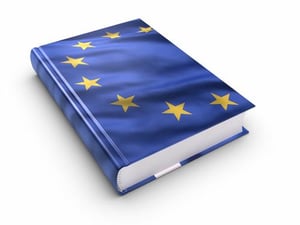On 10 and 11 December 2012, the European Union Competitiveness Council, bringing together European industry ministers and then the European Parliament, agreed on the creation of a "European patent with unitary effect". An agreement on a Unified Jurisdiction of the patent was signed on February 19, 2013 by 24 member states of the European Union, thus completing the "patent package" for the implementation of the unitary patent.
 The European patent with unitary effect will, when it enters into force, will offer a simplification of protective measures and a reduction in costs for all companies, whether European or not.
The European patent with unitary effect will, when it enters into force, will offer a simplification of protective measures and a reduction in costs for all companies, whether European or not.
Simplification concerns the phase after the grant of the European patent with the cancellation of the formalities for national validation of the patent in most countries of the European Union.
The current system. When a European patent is granted by the European Patent Office (on average 5 years from filing), it must then be "validated" in each country where the patentee wishes to obtain protection. These formalities vary from one country to another and are mainly formalities of translations filings into the national language. Several States thus require a translation of the patent in full or in part into their official language (s).
Operation of the new system. The examination and grant procedure (application, examination) will be the same for unitary patents and European patents until they are issued. The procedure, criteria and rules applicable to the examination of patentability, as defined in the European Patent Convention, shall be identical for both types of patent.
The difference between the unitary patent and the current European patent will lie in the post-grant phase, during which the patentee will decide on the extent of the desired geographical coverage.
Once the patent has been granted, the patentee may choose between
- a European patent conferring protection in the territory of the designated States, subject to the completion of the traditional formalities for the issue, or
- a unitary patent conferring unitary protection in the territory of all the States participating in the enhanced cooperation (all the Member States of the European Union with the exception of Spain and Croatia - ie 26 member states).
The patentee may also combine the two systems and apply for a European patent in EPO member states not participating in enhanced cooperation to complete the territorial scope of unitary patent protection.
If the patentee chooses the unitary patent, this patent will automatically be valid, after it is issued, throughout the territory of the Member States of the European Union participating in the enhanced cooperation. It shall be binding for third parties in the official language of the EPO in which it was issued (French, English or German). No translation or other formality will be required at national level.
However, transitional measures are considered for a period not exceeding 12 years.
Coming into force. The unitary patent system is expected to enter into force in the coming months on the date of entry into force of the Unified Patent Court Agreement. The Unified Jurisdiction Agreement will enter into force once it has been ratified by 13 member states (including France, Germany and the United Kingdom).
Exclusion of certain States. Some states have refused to participate in the system:
- Spain has been excluded from the whole system;
- Poland acceded to the unitary patent but not to the unified jurisdiction agreement;
- Croatia has not yet acceded to the unitary patent or the unified jurisdiction agreement, but could do so in the near future.